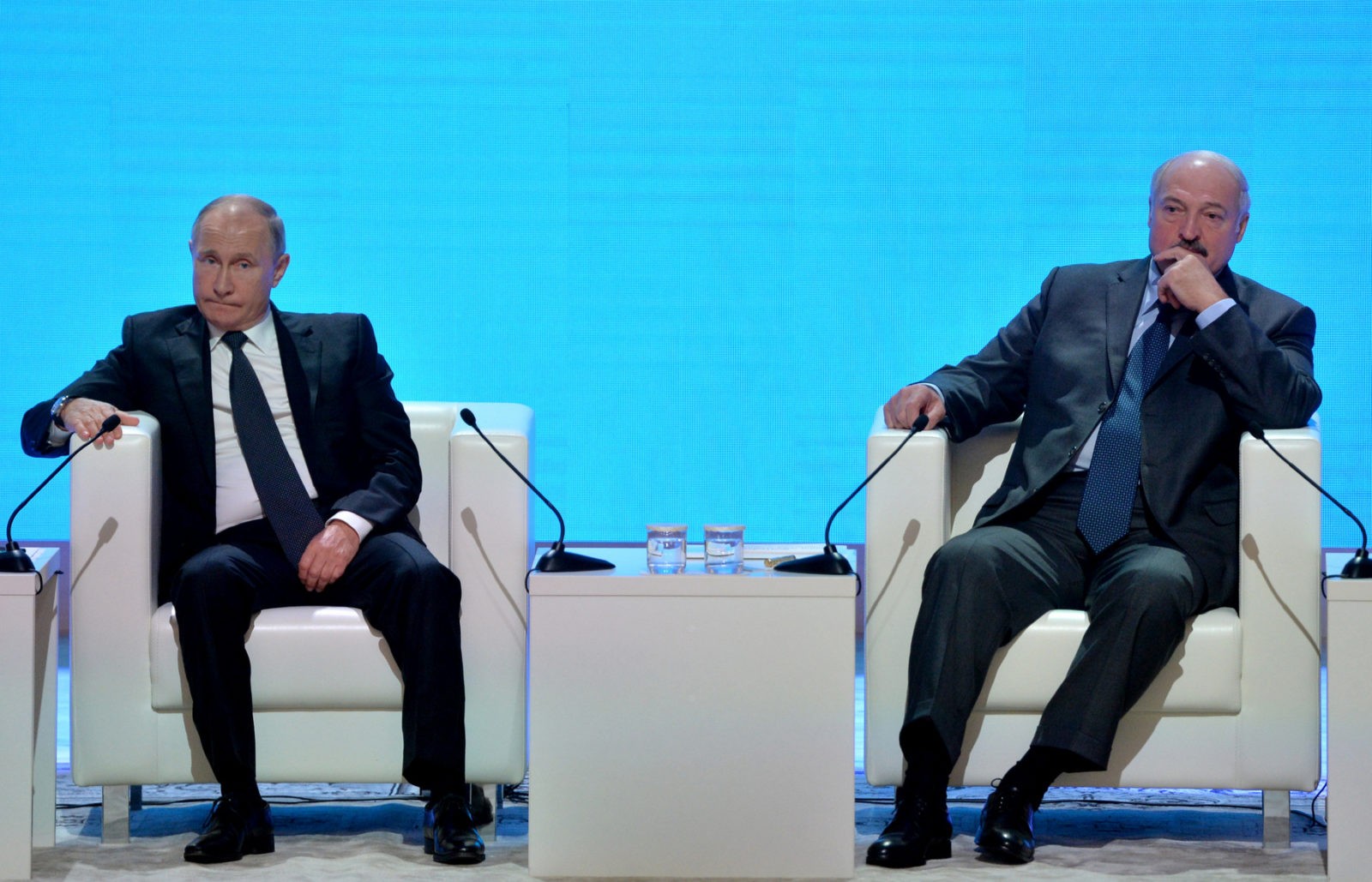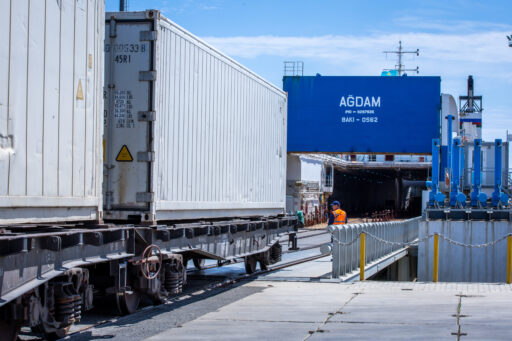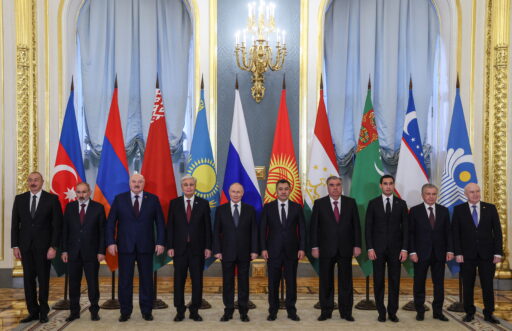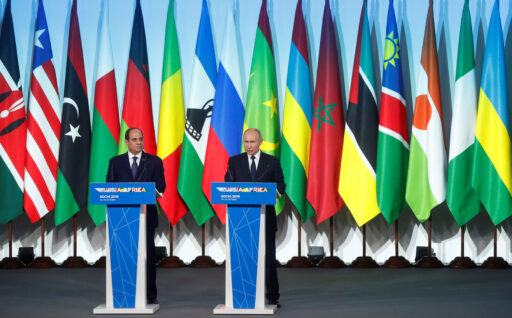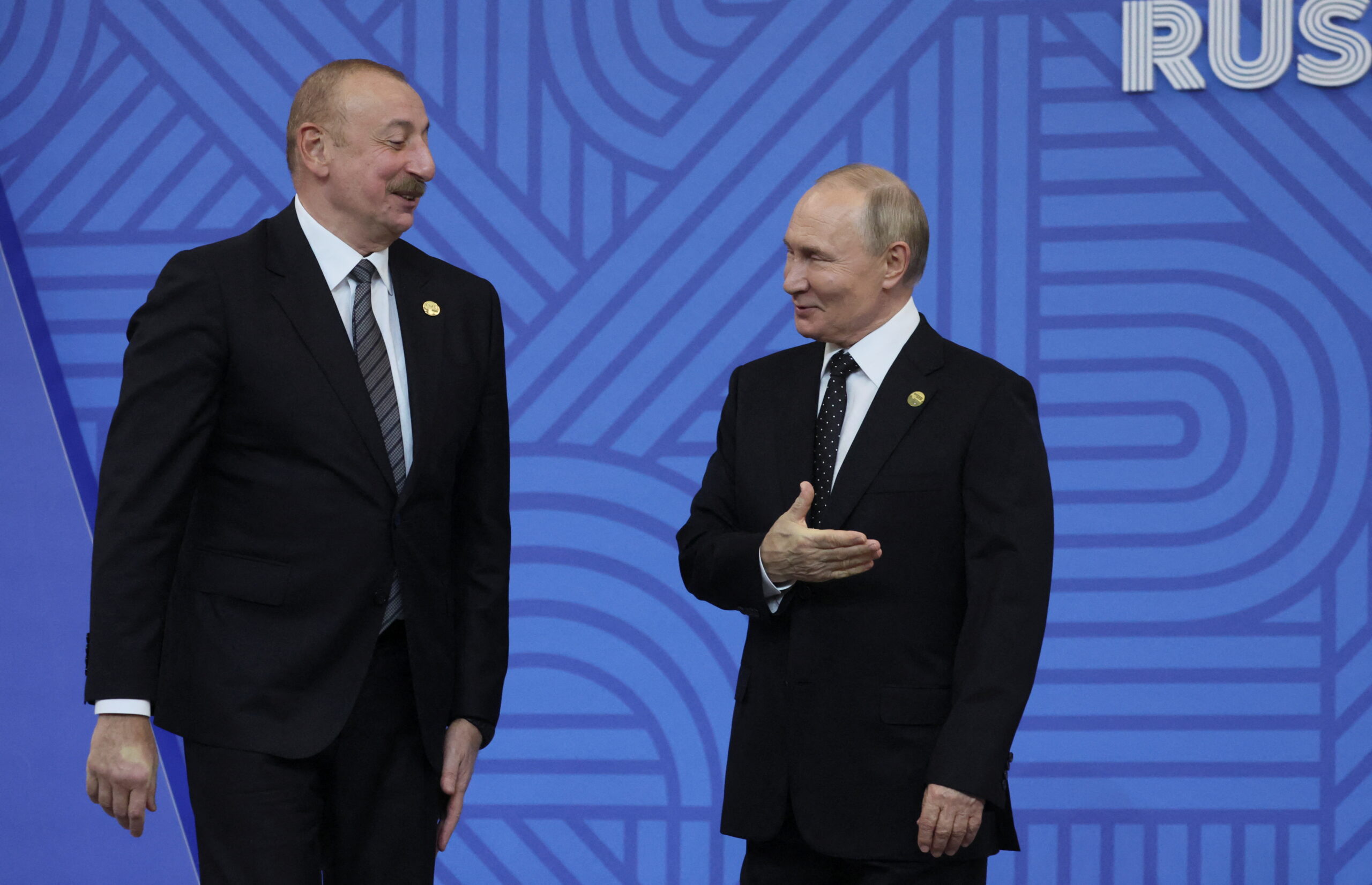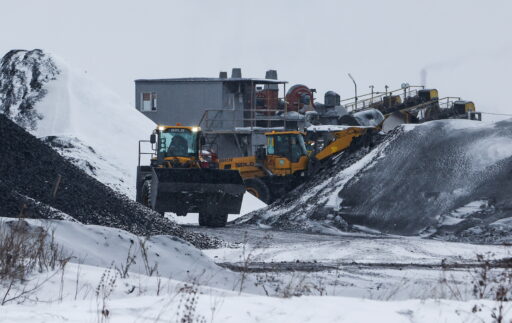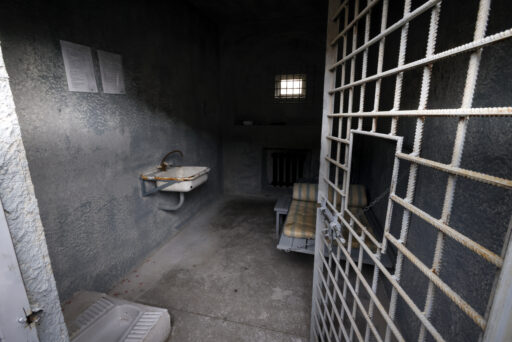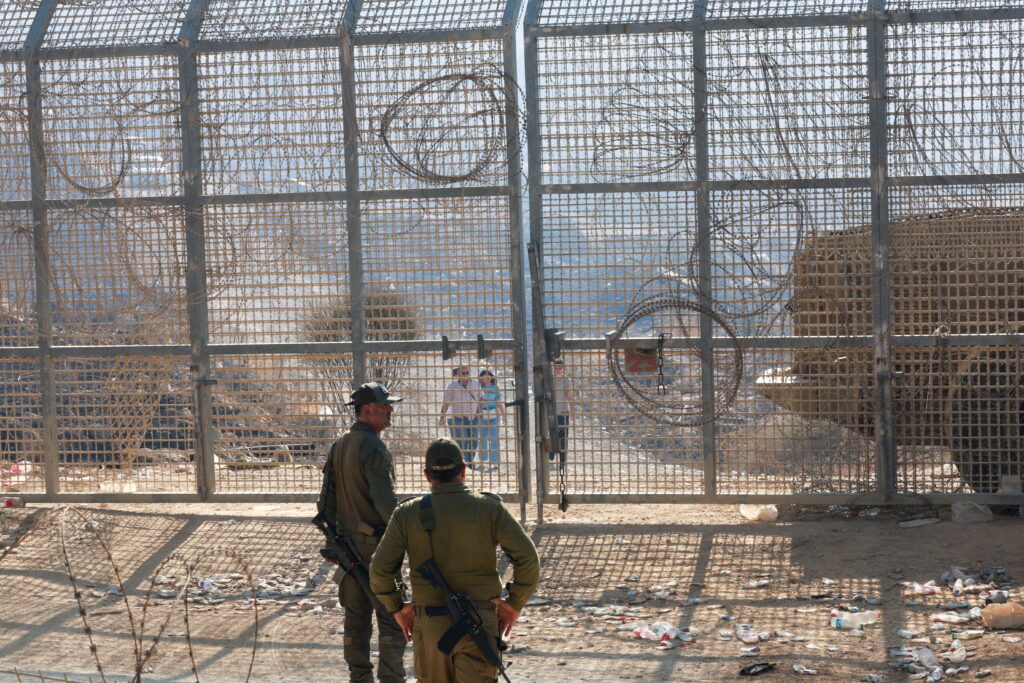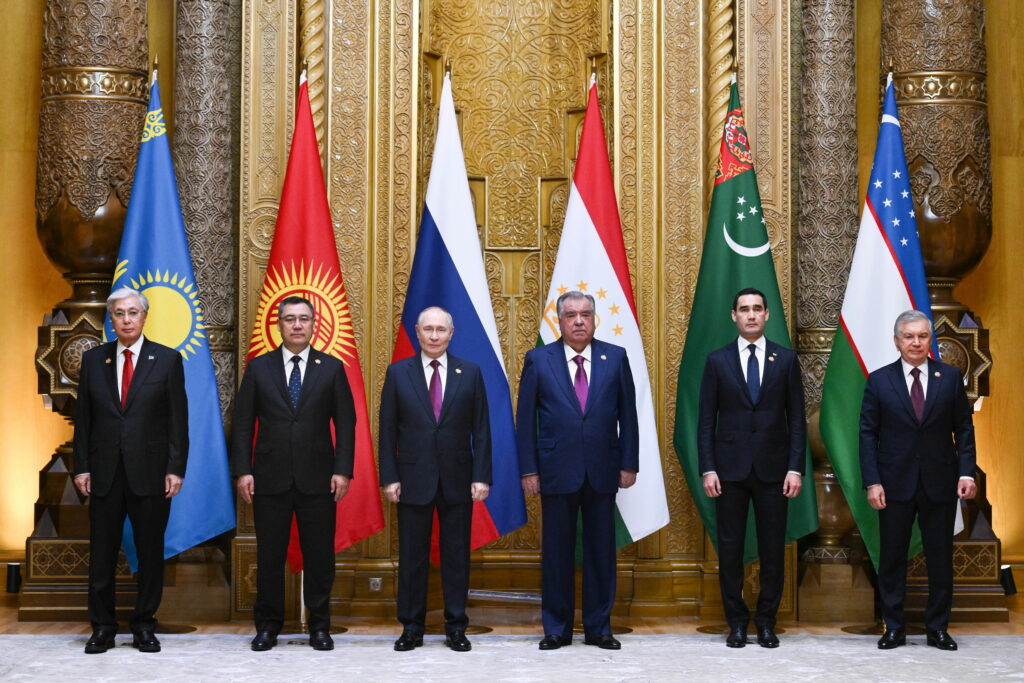Could a Russian attack on Belarus be on the horizon? According to experts, including Vladislav Inozemtsev, Maxim Trudolyubov and Vitaly Shklyarov, such a scenario is not negligible. These concerns are based on several premises. Among them, President Vladimir Putin’s falling popularity. The Kremlin, the thinking goes, might try and solve internal problems with another external “victory”, as with Ukraine in 2014.
The appointment of Mikhail Babich as ambassador to Belarus and his rhetoric is seen as further evidence of a looming threat from the east. And even the meeting of the leaders of the Russian Orthodox Church held in Minsk in October, right after Vladimir Putin’s visit to Minsk, appears ominous. (Though it was in fact made in the context of religious disputes over whether to grant the Ukrainian Orthodox Church independence from the Moscow Patriarchy.)
The term limit of Putin’s powers in 2024 is another prerequisite for the Kremlin’s potential activism in Belarus. The accession of Belarus to Russia could make for the emergence of a formally new state. (Yet it is not clear what stops Putin from keeping power without expanding Russia’s borders.)
These arguments do suggest that such concerns should be taken seriously. However, it is important to remember a few counter arguments. The Kremlin risked its power inside the country and its international position following the events in Georgia in 2008 and those in Ukraine in 2014 and thereafter. In 2015, through the war in Syria, the Kremlin tried to regain its diplomatic capital, which had been quite exhausted due to the military adventure in Ukraine and the economic and political decline in Russia. Nowadays, the Kremlin has no excuse for a new military campaign. The risks posed by such a campaign outweigh the possible benefits at home and in foreign policy.
Even so, Russia’s threat to Belarus seems to exist and is worth looking at with precision.
The essence of the Union
What became the foundation of the Union of Russia and Belarus was the idea of restoring the Russian authority in the post-Soviet space. Moscow pushed this idea as well when building the Eurasian Economic Union. And again, while trying to breathe new life into the Collective Security Treaty Organization (CSTO). Yet, the union with Belarus continued its separate life, albeit hardly noticeable. Russia can restore border control, regulate the supply of Belarusian milk and meat to its market or, to give another example, develop its own tractor for the rocket troops instead of using machinery from the Minsk Automobile Plant. All this would not interfere with the existence of the Union. Moreover, Belarus’ economic dependence on Russia is viewed by Moscow as a given.
In effect, the existence of the Union relies on the military and political plane rather than economic cooperation. The logic of the Union is at play here. Let us recall the “West” military exercises in 1999, 2009, 2013 and 2017, joint air defence, the presence of a radar station in Belarus, capable of sending an early warning of a missile attack, and the presence of a long-distance communications hub for the Russian navy. In the context of any confrontation with the West, Russia´s presence in Belarus plays a key role. It is not so much about geography or the importance of military equipment as such. Rather, it is in the very fact of their presence: in the Moscow system of coordinates, any great power should have its own satellites.
At the same time, relations between the two countries are characterised by constant irritation. There remains a lack of a clear perspective of joint development. At the same time, while Minsk may disagree with Russia’s policy towards Georgia and Ukraine, it will receive Russian loans with gusto.
It seems that Belarus is not at all interesting for the Kremlin as a real ally, who must be persuaded or perceived as a partner. Moscow prefers preserving its own hegemony in the post-Soviet space. The aim is also to prevent any development that calls the political and economic structure of Russia into question. In this sense, Alexander Lukashenko is not yet about to violate the Russian “comfort zone”. He recognises Russian dominance. Moscow is ready to pay for that. Moscow does not have much more to gain. Nor does it have much flexibility. If it gives up its current course and lets the neighbours choose their future, Russia’s ruling elites will have too many existential questions to answer.
Thus, the military presence in Belarus and the presence of the Union have the mission of supporting the current paradigm of Russia’s existence. Besides, it allows Moscow to back up its superpower pretensions. It gives Moscow the impression it can still mark the post-Soviet space as its “backyard”.
Transformations as an excuse for starting a war
Minsk is in an ambiguous position. The Kremlin maintains the status quo in the Russian-Belarusian relations because Moscow has already become accustomed to working with the Lukashenko regime for two decades. Still, in the event of a scenario that is negative for the Kremlin, the affairs of independent Belarus under the umbrella of the Union can become the “internal affairs” of Russia. This gives rise to two questions. First: under what circumstances can Moscow opt for aggression? Second: how could it activate hypothetical aggression?
In the case of Lukashenko’s voluntary or forced resignation, any new leader of Belarus will have a choice. Either be politically closer or further from Moscow. The former would strengthen Russian hegemony and reduce room for manoeuvre for Minsk, which is fraught with internal problems in Belarus. The second option would entail the destruction of the Kremlin’s “comfort zone”. Although this would not by necessity lead to a violent scenario, it increases the risk of one.
For example, if Lukashenko and his entourage decide to pursue serious economic reforms and/or embark on a rapprochement with Europe. That might help lead Belarus out of a difficult situation while maintaining his power. But this would be a serious challenge for Russia. Moscow would not tolerate any attempts by its neighbours to create their own economic “success stories”.
Accordingly, the risk of a power-based scenario will increase in this case as well. Let us leave the low probability of any of these scenarios aside, though. The only thing to stress is that any independent efforts of Belarus that would allow it to get out of many years of stagnation. But it would increase the risk of a collision with the Kremlin.
This situation gives rise to a paradox. Minsk’s possible refusal to renew the agreement on the radar and communications hub for the Russian navy, which expires in 2020, might itself be swallowed by Moscow quite easily. The main thing is to preserve Russia’s military presence as such, whether the form of joint air defence and/or other formats, and to maintain the status quo. However, the Russian radar station in Belarus has a more modern counterpart near Kaliningrad. As regards the long-distance communications hub for the navy, two stations duplicate this role. One near Nizhny Novgorod (this station was obtained by Moscow from Germany as a trophy) and one on the Kola Peninsula. In other words, Moscow will wish to renew the agreement, of course. But only to have it as an item in diplomatic bargaining rather than as a matter of necessity.
It turns out that Russia’s main interest in Belarus in the coming years is to preserve its military presence in all possible forms that are convenient for both parties. It is also to ensure the absence of positive economic and political developments in Belarus.
Conditions for using force
Despite the (currently) low risk of the Russian military and political activation in Belarus, one can single out two conditions that Moscow needs to use force. First, the Kremlin tries to legitimise its military campaigns via loyal political forces in the target country. Even if these forces are marginal, the approach is to create a vision of support for Russia from the Belarusians. Unless a force appears or is created that advocates a full-fledged unification of the two countries, the Kremlin will not opt for an invasion.
Second, the Kremlin goes to war when it perceives the international situation as favourable. This would avoid the most negative consequences, in particular from the United States. The invasion in Georgia took place as the global economic crisis hit in 2008. They were the last months of George W. Bush in the White House. The decision to invade Ukraine was in part facilitated by Barack Obama’s refusal to use force against Bashar al-Assad in the summer of 2013. Moscow perceived this decision as a manifestation of long-term weakness. In other words, Moscow’s active involvement in Belarus is more likely if the Americans and Europeans focus too much on their internal affairs or on other regions of the world.
And yet, in the case of Belarus, the main consideration for the Kremlin will be to assess the political and economic processes in Belarus to see whether they pose a threat to the authorities inside Russia or not. Moscow will remain calm as long as the lack of development or even the deterioration of the socio-economic situation remains the only future for Belarus.
